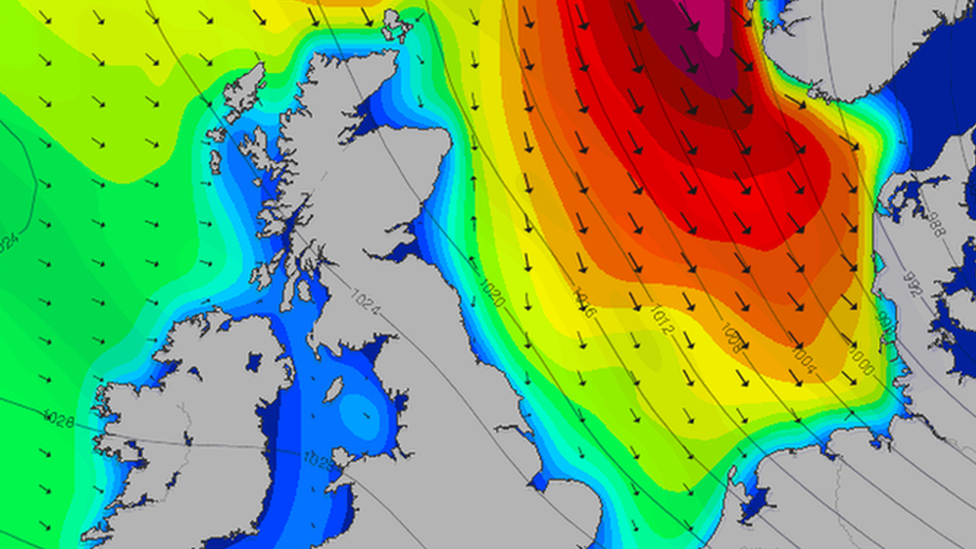Thousands of homes have power restored after lightning strikes
- Published
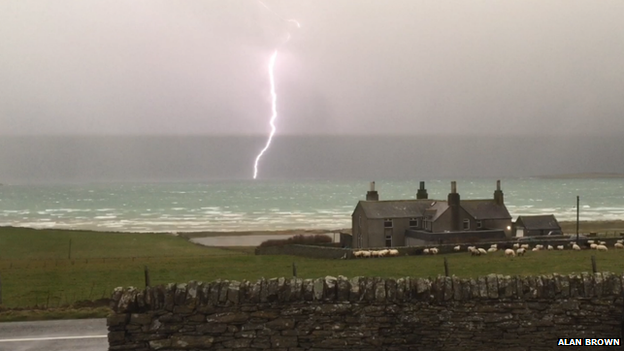
Looking west from Stronsay High School in Orkney as lightning strikes
Thousands of customers have had their power restored in north west Scotland after lightning strikes caused further disruption to the electricity network.
Energy firm SSE said nearly 30,000 customers had been without power at some point on Thursday.
The vast majority were affected after a lightning strike near Fort Augustus resulted in a loss of supply to Skye and the Western Isles.
It followed power cuts on Wednesday as a major storm hit much of Scotland.
SSE said electricity had been restored to people affected by the Fort Augustus lightning strike within about two hours.
But about 1,300 customers remained without power in the Western Isles, part of Argyll and on Orkney at 16:45.
SSE said that continued lightning throughout Thursday meant that further faults were likely.
Video footage shows lightning striking a wind turbine during a storm on Orkney
Engineers have been working on about 80 high-voltage faults during Thursday, after repairing about 120 faults on Wednesday.
An SSE spokesman said: "We have engineers at every fault and are working hard to ensure that supplies are restored tonight to as many customers as possible.
"Unfortunately, more lightning and high winds are forecast for tomorrow and there is likely to be more disruption to the network as a result.
"We have been working closely with local authorities, Police Scotland and other agencies to ensure that our most vulnerable customers have been visited and offered help. We have also deployed catering vans to areas that have been off-supply for long periods."
The Western Isles Emergency Planning Co-ordinating Group said there was a "significant power outage" identified on Harris in the area between Hushinish and Bunavoneader.
Falling ice
British Red Cross (BRC) emergency response teams had earlier been deployed after lightning strikes knocked out power supplies to parts of South Ayrshire.
In northern Scotland and the Western Isles, BRC volunteers were on standby to help the local authority check on vulnerable householders or distribute hot food.
Snow, ice and flooding has also been affecting a number of roads across the country.
The Forth Road Bridge was briefly closed after reports of ice falling from the top of the bridge.
Snow gates were closed on the A93 between Braemar and Glenshee and also on the A939 between Tomintoul and Cock Bridge.
Drivers reported "challenging" conditions on the M8 and M74, and there have been accounts of car journeys taking two hours or more from Edinburgh to Glasgow.
Borders Search and Rescue were called out to rescue dozens of cars stranded in heavy snowfalls on the Scotland-England border overnight.
Vehicles were stuck in drifts at Carter Bar on the A68.
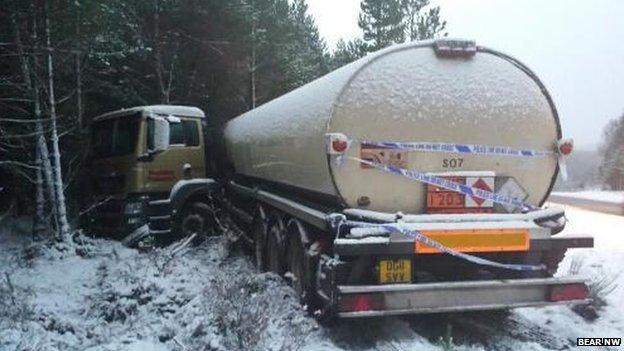
A tanker crashed on the A9 north of Aviemore
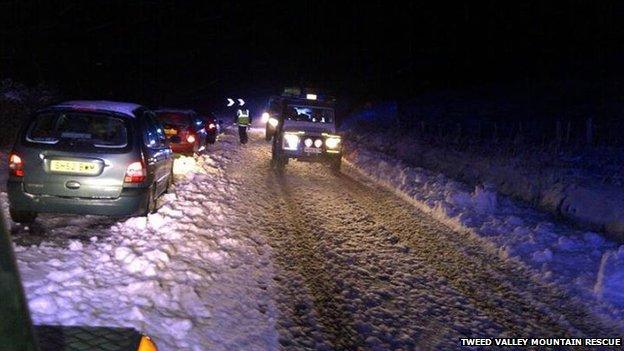
Border Tweed Valley and Northumberland Search and Rescue units helped drivers on the A68
Much of western and northern Scotland was battered by wind and rain at the height of the storm on Wednesday.
A wind speed of 144mph was recorded on the remote St Kilda islands, with gusts in excess of 80mph elsewhere.
Thunder storms hit coastal areas of Ayrshire overnight.
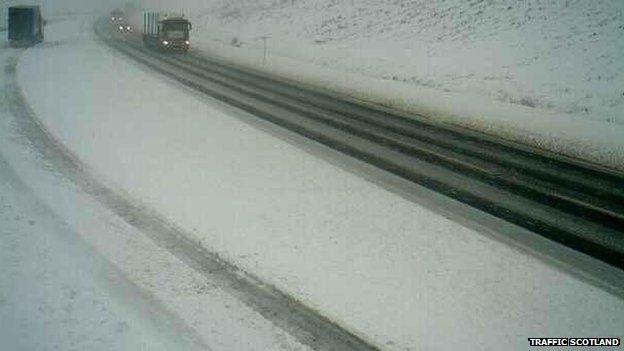
Drivers endured snowy conditions on the A9 at Drumochter on Thursday
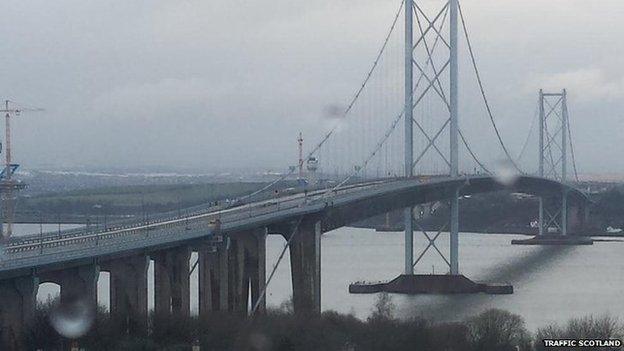
The Forth Road Bridge was closed for a time on Thursday because of falling ice
Met Office yellow "be aware" warnings are still in force for snow and ice.
Avalanche hazard information reports for Scotland's highest mountains have resumed.
Moray council has shut some schools and cancelled some school transport.
The "weather bomb" - or rapid cyclogenesis to give it its correct name - is a deep, low-pressure system which was moving slowly eastwards between Scotland and Iceland.
Wave heights of up to 40ft (12m) battered the west coast for much of Wednesday, with the Centre for Environment, Fisheries and Aquaculture Science, external saying that one of its monitoring buoys had recorded a wave of 52ft (16m) at 15:00 - the highest it had ever seen.
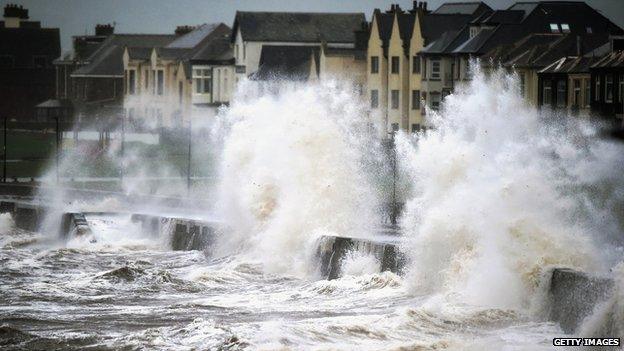
Waves at Prestwick in Ayrshire on Tuesday
A series of flood warnings and alerts were also issued by the Scottish Environment Protection Agency (Sepa), but there have been no reports of major flooding.

Note: the Environment Agency and the Scottish Environment Protection Agency display their flood alert data differently. While the Environment Agency highlights individual rivers only, in Scotland the entire region is coloured to indicate the level of alert.

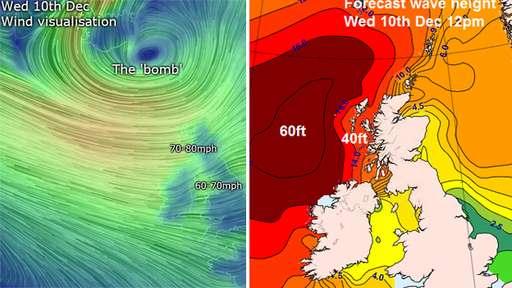
This BBC graphic shows the wind strengths and wave heights from the "weather bomb"

Check out the latest travel news for Scotland

Around the country
For the latest on the roads visit the BBC's travel news page and keep up to date with incidents and roadworks on the motorways here.
Around the country you can check for updates from:
Alternatively, for regular travel bulletins listen live to BBC Radio Scotland and follow @BBCTravelScot, external.
In times of severe disruption you can also follow the BBC Scotland severe weather Twitter list, external of key sources.
Below are a number of other traffic information sources.
Other links

What is a weather bomb? BBC weather's Peter Gibbs explains

Are you affected by the severe weather in Scotland? You can send us your pictures or videos to yourpics@bbc.co.uk and your experiences to haveyoursay@bbc.co.uk, external
Alternatively, you can text them to 61124 (UK) or +44 7624 800 100 (International). If you have a large file you can upload here, external.
Read our terms and conditions, external.
- Published11 December 2014
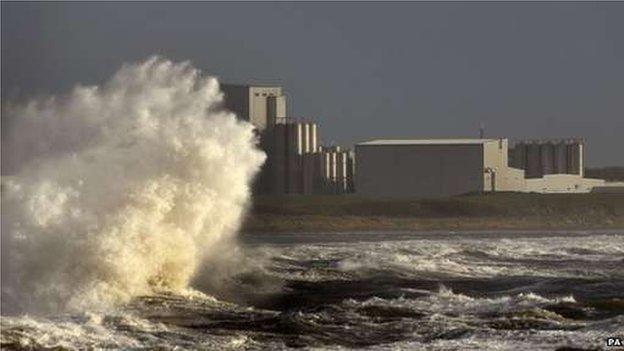
- Published10 December 2014
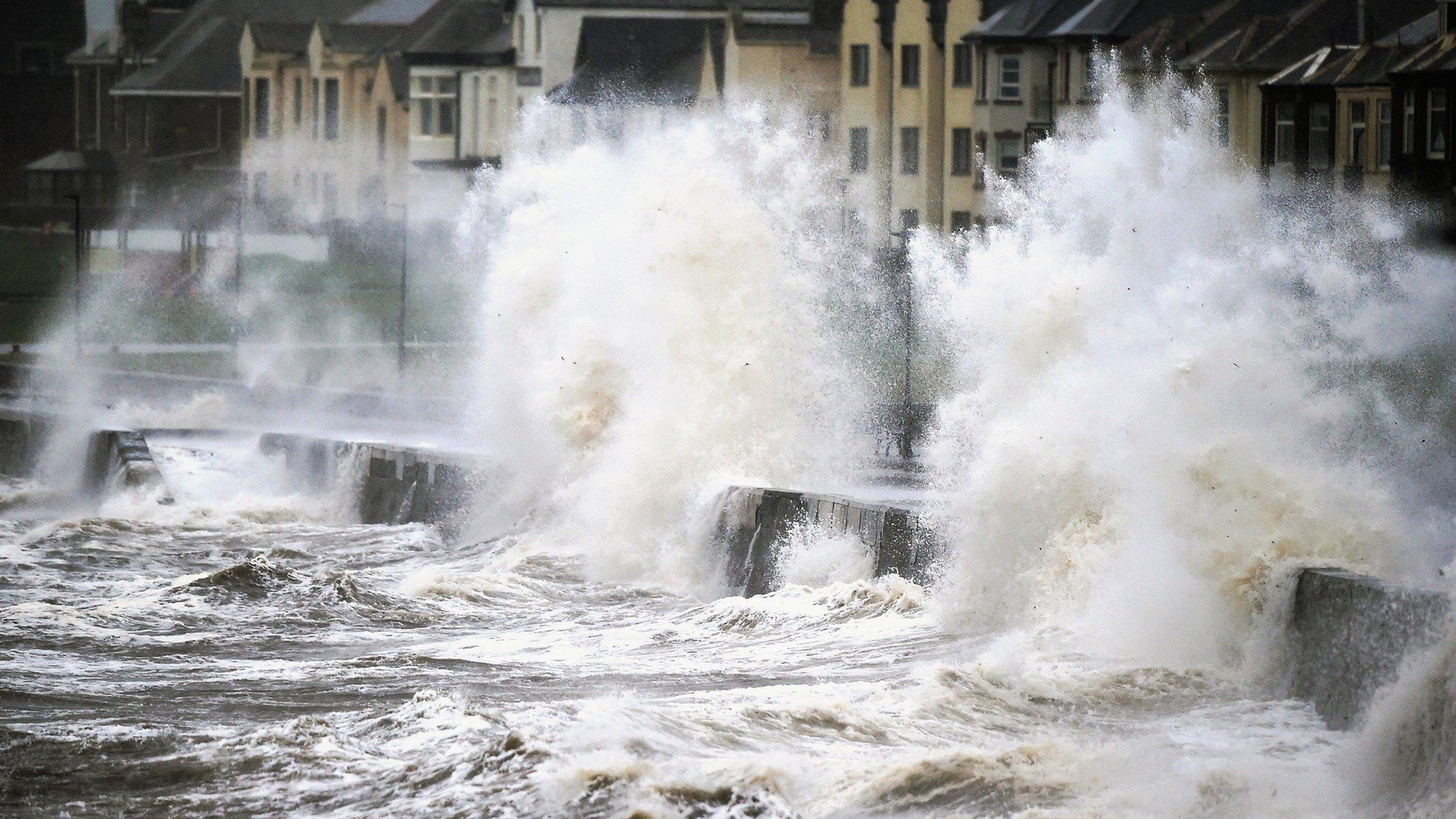
- Published10 December 2014
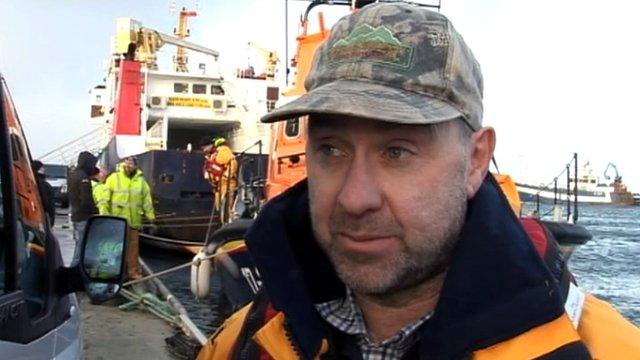
- Published10 December 2014
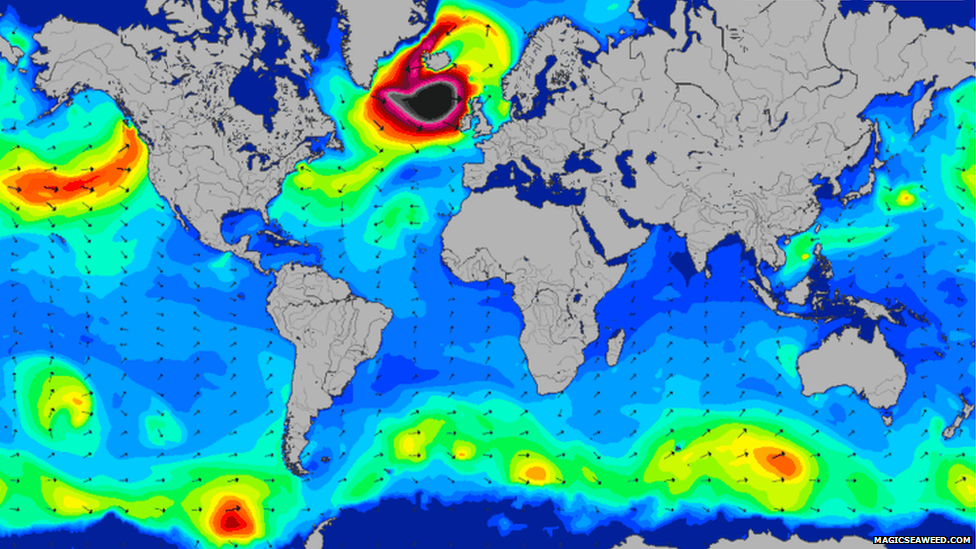
- Published10 December 2014
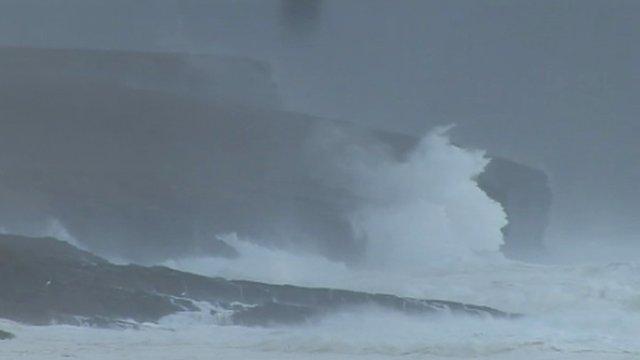
- Published10 December 2014
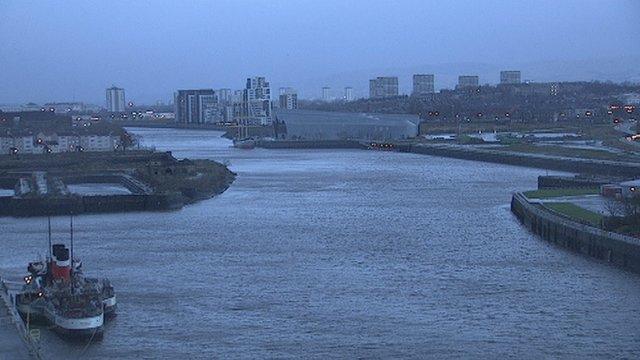
- Published9 December 2014
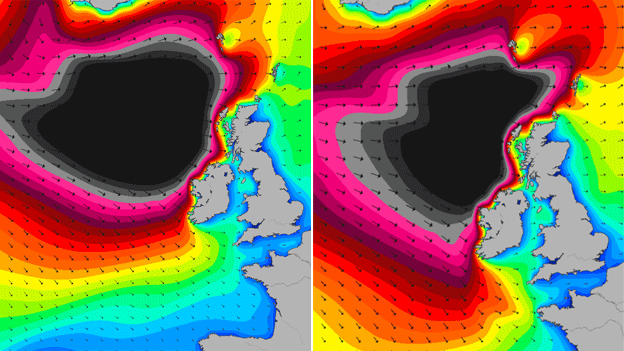
- Published8 December 2014
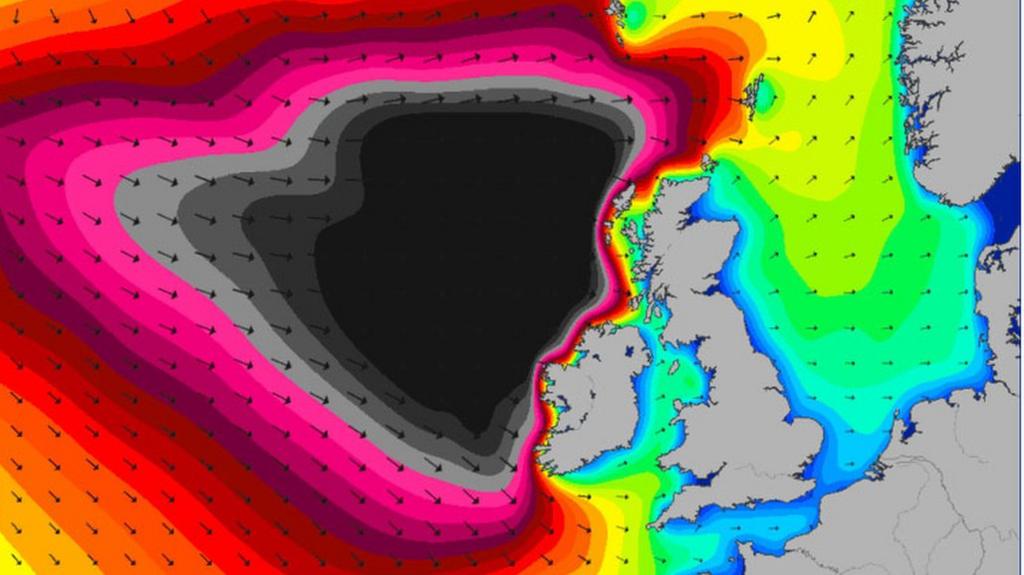
- Published8 December 2014
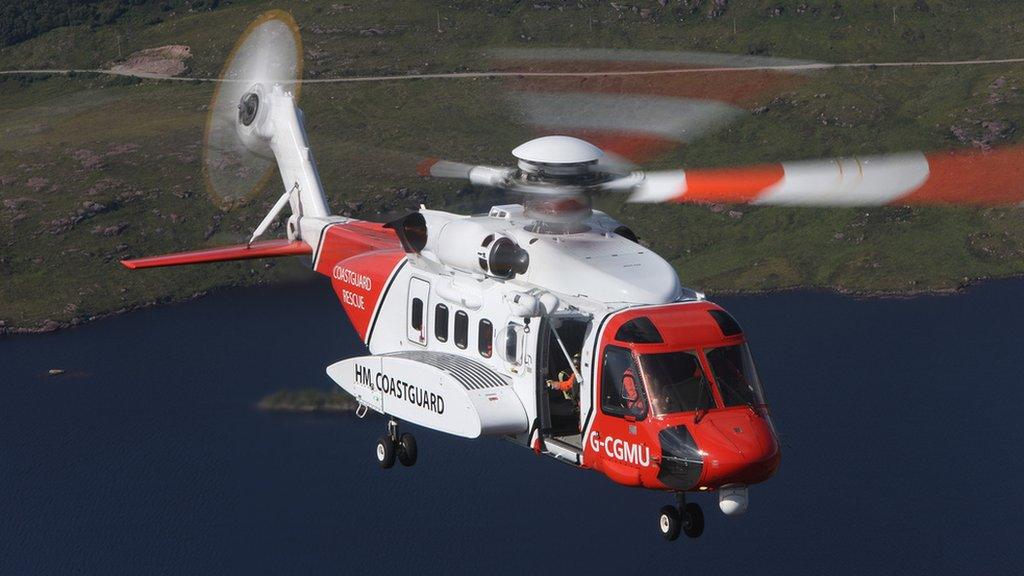
- Published6 February 2013
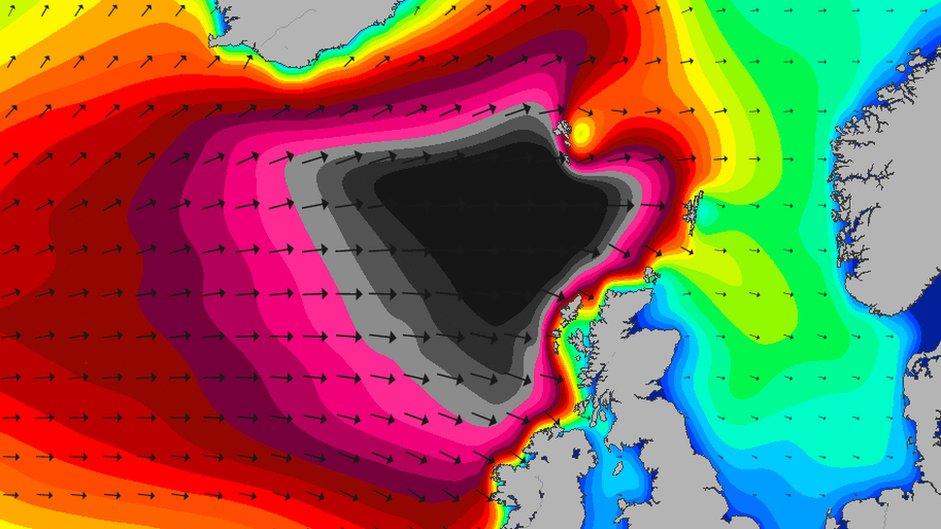
- Published6 December 2013
